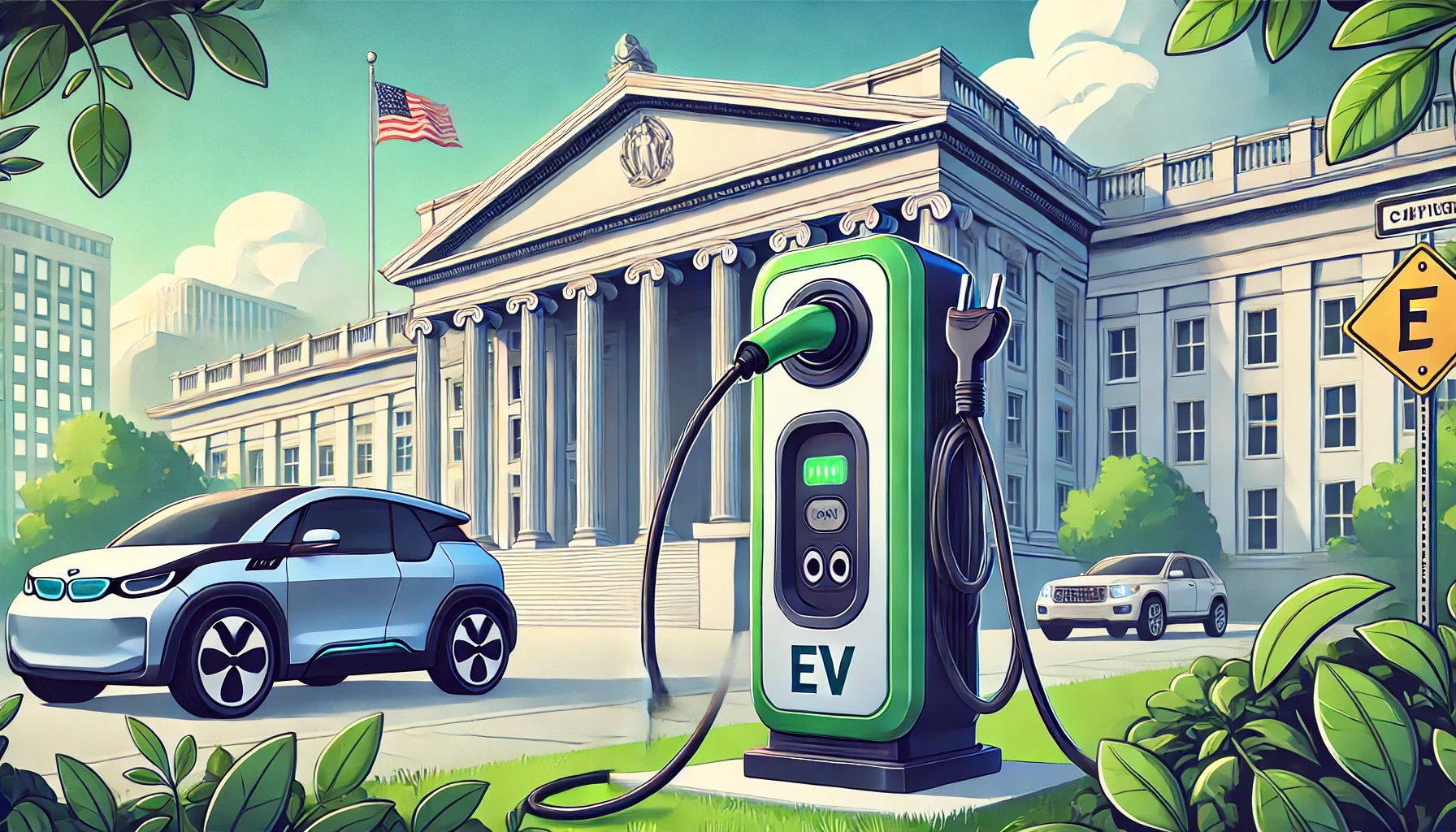The US Department of the Treasury has clarified who qualifies for tax credits on electric vehicle chargers, allowing eligible individuals and businesses to claim up to 30% of the installation cost.
Eligibility for EV Charger Tax Credit Clarified
Everyone should be aware that the US Department of the Treasury has made it clear who is eligible to receive tax credits for electric vehicle chargers, whether they are individuals or businesses.
In August 2022, the Inflation Reduction Act was signed into law, and as a result, eligible electric vehicle charging "property" might receive a tax credit of up to 30% of the cost.
Alternative Fuel Vehicle Refueling Property Credit Explained
Each charging port and its "functionally interdependent components" are eligible for the Alternative Fuel Vehicle Refueling Property Credit (section 30C) EV charging tax credit, according to the US Department of the Treasury and the Internal Revenue Service.
According to Suncheth Bhat, chief commercial officer at EV Realty, "this one simple clarification should positively impact infrastructure deployment as industry players can now more comfortably move forward with projects leveraging this tax credit," Bhat told Electrek.
Homeowners Can Claim Up to $1,000 for EV Charger Installations
Individuals can claim up to $1,000 in tax credits for electric vehicle chargers installed at home using IRS Form 8911, while businesses can claim up to $100,000 (an increase from $30,000) for commercial buildings. On January 1, 2023, that became law.
Exempt organizations and government agencies may also use elective pay to claim the credit.
Eligibility Depends on Location in Census Tracts
Businesses and people must be situated in "eligible census tracts" to be eligible for the 30C EV charging tax credit. An eligible census tract is defined by the IRS as:
… any population census tract that is a low-income community or that is not an urban area. Approximately two-thirds of Americans live in eligible census tracts.
Business and tax-exempt governmental entities claiming the Alternative Fuel Vehicle Refueling Property Credit can receive an enhanced credit if they are paying workers prevailing wages and using registered apprentices to install the equipment.
Mapping Tool to Check EV Charger Credit Eligibility
To assist businesses and people in determining their eligibility for the 30C EV charging tax credit, the US Department of Energy and Argonne National Laboratory have launched a mapping tool. It is important to note that the map contains a disclaimer that it is not official IRS guidance, and the same is true for this article. Therefore, when it is time to submit your taxes, Electrek elaborates that you consult with a tax professional to verify your eligibility.
Albert Gore III, executive director of the Zero Emission Transportation Association (ZETA), stated:
“Developing our nation’s charging network is crucial to transportation electrification. As one of the principal incentives for charging infrastructure, 30C will help fill in charging gaps and attract investment to rural and lower-income communities. It will also help comfort potential EV drivers with the transition as they see more publicly available infrastructure.”



 Samsung and SK Hynix Shares Hit Record Highs as Nvidia Earnings Boost AI Chip Demand
Samsung and SK Hynix Shares Hit Record Highs as Nvidia Earnings Boost AI Chip Demand  Meta Signs Multi-Billion Dollar AI Chip Deal With Google to Power Next-Gen AI Models
Meta Signs Multi-Billion Dollar AI Chip Deal With Google to Power Next-Gen AI Models  BlueScope Steel Shares Drop After Rejecting Revised A$15 Billion Takeover Bid
BlueScope Steel Shares Drop After Rejecting Revised A$15 Billion Takeover Bid  Samsung Electronics Stock Poised for $1 Trillion Valuation Amid AI and Memory Boom
Samsung Electronics Stock Poised for $1 Trillion Valuation Amid AI and Memory Boom  Nvidia Earnings Preview: AI Chip Demand, Data Center Growth and Blackwell Shipments in Focus
Nvidia Earnings Preview: AI Chip Demand, Data Center Growth and Blackwell Shipments in Focus  xAI’s Grok Secures Pentagon Deal for Classified Military AI Systems Amid Anthropic Dispute
xAI’s Grok Secures Pentagon Deal for Classified Military AI Systems Amid Anthropic Dispute  Nintendo Share Sale: MUFG and Bank of Kyoto to Sell Stakes in Strategic Unwinding
Nintendo Share Sale: MUFG and Bank of Kyoto to Sell Stakes in Strategic Unwinding  Amazon’s $50B OpenAI Investment Tied to AGI Milestone and IPO Plans
Amazon’s $50B OpenAI Investment Tied to AGI Milestone and IPO Plans  OpenAI Pentagon AI Contract Adds Safeguards Amid Anthropic Dispute
OpenAI Pentagon AI Contract Adds Safeguards Amid Anthropic Dispute  Hyundai Motor Plans Multibillion-Dollar Investment in Robotics, AI and Hydrogen in South Korea
Hyundai Motor Plans Multibillion-Dollar Investment in Robotics, AI and Hydrogen in South Korea  FedEx Faces Class Action Lawsuit Over Tariff Refunds After Supreme Court Ruling
FedEx Faces Class Action Lawsuit Over Tariff Refunds After Supreme Court Ruling  Netflix Stock Jumps 14% After Exiting Warner Bros Deal as Paramount Seals $110 Billion Acquisition
Netflix Stock Jumps 14% After Exiting Warner Bros Deal as Paramount Seals $110 Billion Acquisition  Microsoft Gaming Leadership Shake-Up: Phil Spencer Retires, Asha Sharma Named New Xbox CEO
Microsoft Gaming Leadership Shake-Up: Phil Spencer Retires, Asha Sharma Named New Xbox CEO  OpenAI Targets $600B Compute Spend as IPO Valuation Could Reach $1 Trillion
OpenAI Targets $600B Compute Spend as IPO Valuation Could Reach $1 Trillion  Boeing Secures $166.8 Million U.S. Navy Contract for P-8A Engineering and Software Support
Boeing Secures $166.8 Million U.S. Navy Contract for P-8A Engineering and Software Support  OpenAI Hires Former Meta and Apple AI Leader Ruomin Pang Amid Intensifying AI Talent War
OpenAI Hires Former Meta and Apple AI Leader Ruomin Pang Amid Intensifying AI Talent War 































